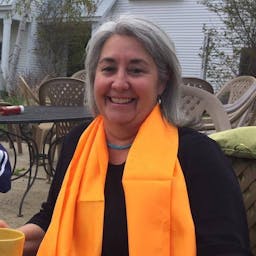A letter to a friend of mine and an ally of women worldwide
Nov 25, 2017
Story
The name of the girl in this story is a fictitious name. I used the name Parwana to honor the memory of 8-year-old Parwana who was killed by a suicide bomb attack in Kabul on September 8, 2012.
Dear Changiz,
I have been honored to know you for over a year now. Your sensitivity and passion for women's rights fills a great void in Afghanistan. Women all around the world are grateful for our male allies in this fight to end gender violence. When we all work together and embrace our male counterparts as critical agents of change, the road to success will become shorter. You recently said to me, "I believe very much in equality and have strong faith that the situation can change for women world-wide." The women world-wide thank you for those encouraging words - and we thank you for your activism to help make that change a reality.
You told me a heartbreaking story the other day. I'm glad you agreed to let me share it on World Pulse. It's so important that we help the voiceless victims of violence to speak out. And since the victim in the story you shared with me was murdered, this may be the only way anybody ever hears her voice. When you shared your disturbing experience, you explained that you met Parwana at the Afghanistan Medical Criminology Center. She was a child of only 14 years. She was one of hundreds of other corpses waiting to be examined for evidential purposes. Over 70% of the corpses were women, mostly young and mostly murdered due to family issues.
Parwana lay on a stark table in her colorful and elaborate wedding dress. Her fingernails were brightly painted, her face had the artificial color of an Afghan bride's heavy makeup. There was no investigation needed to determine the cause of her death or the perpetrator. She had been murdered on her wedding night by her husband. She had been murdered because there was no evidence of blood when her much older husband penetrated her innocent body.
I knew from previous reading and discussions that in some Afghan families, as in families from some other countries, relatives wait outside the room of the newly married couple for proof that the bride was a virgin when the marriage was consummated. The blood from her broken hymen is handed on a cloth to family members who wait outside the door. In cultures like this, if there is no blood, there are consequences. Many feel that the absence of blood is 100% proof that the girl is not a virgin. They are unsympathetic to a girl who has been raped. They are uninformed about all the other possibilities that could explain the innocent absence of blood for a virgin. And that misconception deeply dishonors the bride's family, might even bring charges of marital fraud and/or provoke an honor killing or murder.
You told me that Parwana's body was at the Criminology Center not to determine how she was killed or who killed her - but to determine if she had been sexually active before her marriage. If there was proof that she was not a virgin before her wedding, the crime and penalty for her murder would be reduced. Horrifying!! You said, "Women, in my land, are not considered to be a human, have no position, dignity and value. They can easily be targeted. Government rules establish strong ties with local culture and are highly influenced by tribal elders. Ultimately, the cost of the lives of the women can easily be paid for and resolved."
It is so disturbing that a young girl's life can be bartered and bargained for in this way. In such a society, the groom and the groom's family feel that they have been cheated and that they should be compensated. The grieving family of the bride is dishonored and punished. And Parwana's life has ended before it ever really began.
Changiz, one thing you shared has really stuck with me. You said, "the problem in Afghanistan is that these things become so common. And the commonizing of uncommon issues in a country like Afghanistan makes one totally despair since it is a bad social pattern and behavioral model that teaches a bad lesson to the new generation." Commonizing uncommon issues, dehumanizing our shared humanity, desensitizing our human sensitivities. We have to fight these social patterns. We are capable of so much compassion and tolerance and we must find a way to build those traits in each other.
I understand the despair you felt when you left the Criminology Center. Your closing words in your message to me will stay with me forever as I'm sure Parwana's face will stay with you. You said, "I am just so deeply affected by such stories, let alone seeing the bodies that talk to me with their cold, red, beautiful but dead smiles."
I am glad that you have agreed to help in whatever initiative we create to engage more male allies. I look forward to meeting with the other World Pulse members and begin to put a plan in place. We need you, Changiz. The world needs you. And we need more men like you.
With love, respect and gratitude, Kara
P.S. It was a year ago this week that you shared your first post on World Pulse with me, "Gender & Violence" https://www.worldpulse.com/en/community/users/yasa/posts/23067.
Note: Changiz is known formally and on World Pulse as Ali Reza Yasa and uses the single name Yasa. His World Pulse profile can be seen here: https://www.worldpulse.com/en/community/users/yasa




